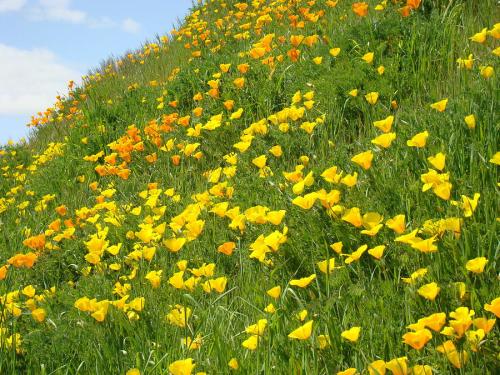A Bitterness | Mary Oliver
by Elouise

This poem by Mary Oliver hooked me a few months ago. I think it’s about her father. In Upstream: Selected Essays, Mary describes what she did in order to have a life of her own. This included taking a different route in life than her father took. In this poem, she describes his life as she understands it after his death.
A Bitterness
I believe you did not have a happy life.
I believe you were cheated.
I believe your best friends were loneliness and misery.
I believe your busiest enemies were anger and depression.
I believe joy was a game you could never play without stumbling.
I believe comfort, though you craved it, was forever a stranger.
I believe music had to be melancholy or not at all.
I believe no trinket, no precious metal, shone so bright as your bitterness.
I believe you lay down at last in your coffin none the wiser and unassuaged.
Oh, cold and dreamless under the wild, amoral, reckless, peaceful flowers of the hillsides.© by Mary Oliver in 1992; published by Beacon Press in New and Selected Poems, Volume One, winner of The National Book Award; poem found on p. 43
I wonder what Mary Oliver’s father would say about this description. It strikes me as a perceptive and honest lament. This is the father she left in order to save her own one precious life. It’s also the bitter man who never found the comfort he craved.
In the last lines, Mary Oliver points to the strange disconnect between his ‘cold and dreamless’ world (in life and in death), and the beautifully wild yet peaceful flowers now covering the ground above his coffin. The contrast couldn’t be more painful.
As a young girl, Mary Oliver endured brutal mistreatment from her father. Her poem entitled “Rape” leaves no doubt. Nonetheless, Mary Oliver’s relationship with her father didn’t disappear. She comes back to it in several poems in this collection.
In this poem, she points to a sad irony about her father. Here he rests, “cold and dreamless under the wild, amoral, reckless, peaceful flowers of the hillsides.” Clueless about what he missed in life and, even more painful, what he missed in his daughter’s life. All because of his undying bitterness.
The poem reminds me of my father, and the circumstances that shaped his outlook on life and on me. What poem might I write about my father? What might be his identifying characteristic? If not ‘bitterness,’ then what? And how does that affect me today?
© Elouise Renich Fraser, 20 September 2019
Photo found at fineartamerica.com
Wow. Such pain. Yes, a courageous lament. I hope it helped her heal a little.
LikeLiked by 1 person
Thanks for this comment. Mary wrote this years after taking leave of her father. I was encouraged by the poem. Her powerful lament shows how well she understood her father’s bitterness, as well as the tragedy of his life as something to be mourned. I think clear-eyed compassion for someone who has wronged you isn’t easy. So there’s a challenge in this for me.
LikeLiked by 1 person
Thank you for the writing prompt. After reading your reflections, I felt the need answer your question, “What poem might I write about my father?” https://wp.me/P2VEN9-i1
LikeLiked by 2 people
Thanks right back for the link. I read your wonderful poem, plus two other pieces about you and your parents. What a wonderful tribute to them. You must miss your father like crazy.
LikeLiked by 1 person